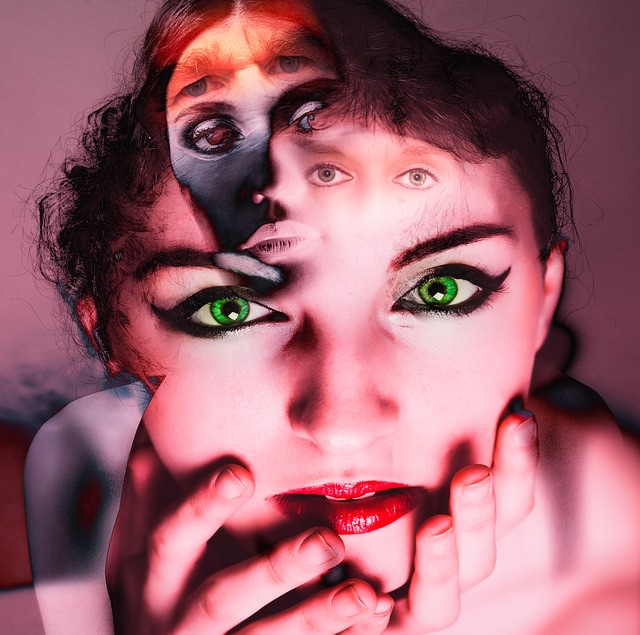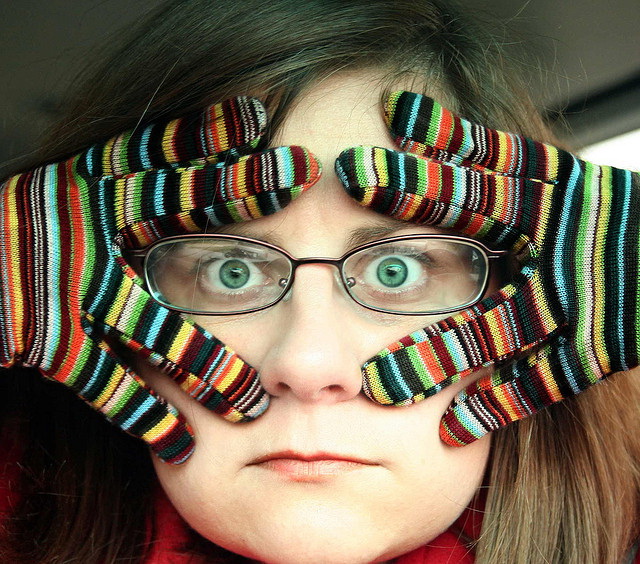Tag Archives: mental health stigma
Understanding Schizophrenia: Creativity, Divergent Thinking, and the Frontal Lobe

Schizophrenics exhibit brain abnormalities that go beyond emotional disturbances and delusions, including diminished frontal lobe activity, which results in a range of cognitive deficits. The brain’s ability to process information in a cognitively organized way, for example, is disrupted, and the filters that allow neurotypical people to screen out irrelevant stimuli are often absent. As a result, the schizophrenic’s mental functioning is frequently impaired. Whether this impairment is part of the cause of schizophrenic symptoms or arises as a result of them is, as yet, not known.
Despite their cognitive impairments, the IQ scores of schizophrenics are similar in range to those of the rest of the population. While movies like “A Beautiful Mind” have given rise to the idea that mental illness often goes hand in hand with genius, this is simply not the case; indeed, schizophrenics actually perform better, cognitively, once they are medicated and the mental illness is under control.
There is one aptitude, however, which may indeed be found in greater measure in the minds of schizophrenics: Creativity. Functional schizophrenics are often able to organize myriad pieces of information (ones that are both cognitive and sensory in nature) to yield unique and often highly insightful solutions to problems. This heightened creativity may account for the mistaken belief that mentally ill people are more intelligent than average.
Redefining ‘Crazy’ as a stereotype for Mental Disorders

Even though we live in a world that is becoming more accepting of our differences there remains pockets of misunderstanding. Let’s take the area of mental illness as an example. Still today “crazy” remains more than just a word. For many, it is an umbrella under which people with all forms of mental illness lie.
How often do we hear others refer to the odd behavior of someone as they’re being crazy? This inference carries over into our everyday lives as synonymous with someone being mentally ill. It is reminiscent of the parable of “Cast the first stone.” Judgments are often hastily made when in fact we may be judging ourselves.
While concrete data are difficult to find, one report from the Congressional Research Service issued in February of 2014 indicates that somewhere between 30 and 40% of the adult population in the U.S. have a diagnosable mental illness. These figures suggest that even among those who continue to refer to others as crazy may also be a part of the same group.
In this article we will make an effort to clear the air about the stereotypes we use. This will include what constitutes a mental disorder, the spectrum of mental conditions, and the treatment of mental illness. An important premise in understanding mental conditions is their inclusion into the overall categories of medical conditions.
We will be using four sources. These are current data, experience, the Diagnostic and Statistical Manual of Mental Disorders, fifth edition (DSM-5), and the International Classification of Diseases – 9 (ICD). The ICD-9 serves as the guide for all medical conditions.
What is “Crazy?”
Odd, weird, different, crazy are some of the terms used to describe another when how they act is outside the norms we have come to expect of others. Sometimes these behaviors may seem eccentric, perhaps a bit comical. In other instances, it may simply be that there is something about a person, some sinister element that sets of internal alarms.
We all have experienced encountering someone who talks to themselves, encounters their environment with suspicion, has unusual muscle ticks, or makes strange sounds. In other cases it may be someone we know a friend or relative whose odd behaviors have kept them isolated from the “normal” world.
Mental illness is a vast category of symptoms and behaviors serious enough so as to impair the persons functioning within the norms of society. In some instances, these impairments may be well hidden and compensated for. For many other mentally ill people their symptoms and behaviors can range from mild to severe
While we may not know what the cause of the odd behaviors is, intuitively we know that there is something different going on.







